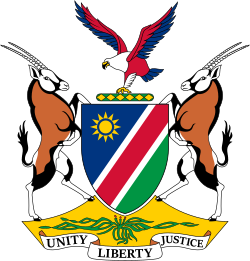| Dates [14] | Chairman | Ministerial portfolio [10] | Party |
|---|
| 17 June 1985 — 16 September 1985 | Dawid Bezuidenhout | Transport | Labour Party |
| 17 September 1985 — 16 December 1985 | Hans Diergaardt | Local Authorities and Civic Affairs | Rehoboth Free Democratic Party |
| 17 December 1985 — 16 March 1986 | Moses Katjikuru Katjiuongua | Manpower, National Health and Welfare | SWANU |
| 17 March 1986 — 16 June 1986 | Fanuel Kozonguizi | Justice, Information, Post and Telecommunication | Democratic Turnhalle Alliance |
| 17 June 1986 — 16 September 1986 | Andrew Matjila | Education and Central Personnel Institution | Democratic Turnhalle Alliance |
| 17 September 1986 — 16 December 1986 | Dirk Mudge | Finance and Government Affairs | Democratic Turnhalle Alliance |
| 17 December 1986 — 31 January 1987 | Ebenezer van Zijl | Agriculture, Water Affairs and Fisheries | South West National Party |
| 1 February 1987 — 30 April 1987 | Andreas Shipanga | Nature Conservation, Mining, Commerce and Tourism | SWAPO Democrats |
| 1 May 1987 — 31 July 1987 | Dawid Bezuidenhout | Transport | Labour Party of Namibia |
| 1 August 1987 — 17 January 1988 | Jan de Wet | | South West National Party |
| 18 January 1988 — 17 April 1988 | Moses Katjikuru Katjiuongua | Manpower, National Health and Welfare | South West African National Union |
| 18 April 1988 — 17 July 1988 | Andrew Matjila | Education and Central Personnel Institution | Democratic Turnhalle Alliance |
| 18 July 1988 — 17 October 1988 | Dirk Mudge | Finance and Government Affairs | Democratic Turnhalle Alliance |
| 18 October 1988 — December 1988 | Andreas Shipanga | Nature Conservation, Mining, Commerce and Tourism | SWAPO Democrats |
| December 1988 — January 1989 | Andrew Matjila | Education and Central Personnel Institution | Democratic Turnhalle Alliance |
| January 1989 — 28 February 1989 | Harry Booysen | | Labour Party of Namibia |

